[OmniFaces utilities] The
getRichFacesRenderIds() method returns the render IDs from the RichFaces PartialViewContext implementation. RichFaces PartialViewContext implementation does not have the getRenderIds() method properly implemented. So a hack wherin the exact name of the private field needs to be known has to be used to properly extract it from the RichFaces PartialViewContext implementation.Method:
See also: Hacks#getRichFacesPartialViewContext()
If you read the documentation for PartialViewContext#getRenderIds() and you didn't understand exactly what it does, then here it is a quick overview. When we submit a form via an AJAX request (managed by JSF via PartialViewContext), the value of the render attribute it one of the reserved values (e.g. @form) and/or a list of clientIds separated by space. Practically, the value of the render attribute is available in the request parameters map under the javax.faces.partial.render parameter (or, PartialViewContext#PARTIAL_RENDER_PARAM_NAME), as in figure below:
<h:form
id="loginFormId">
E-mail: <h:inputText id="emailId"
value="#{loginBean.email}"/>
Info: <h:inputSecret
id="passwordId" value="#{loginBean.password}"/>
<h:commandButton id="submitId"
value="Login" action="#{loginBean.loginAction()}">
<f:ajax execute="@form" render="emailId
passwordId"/>
</h:commandButton>
</h:form>
The loginFormId:emailId
and loginFormId:passwordId
are returned by the PartialViewContext#getRenderIds() in a Collection of Strings (see Ajax#getContext()):
import
org.omnifaces.util.Ajax;
import
java.util.Collection;
...
PartialViewContext
pvContext= Ajax.getContext();
// e.g. [loginFormId:emailId,
loginFormId:passwordId]
Collection<String>
renderIds = pvContext.getExecuteIds();
If you are curious to see how this method is implemented, then check below the Mojarra 2.2.9
implementation (the relevant code was highlighted):
// Mojarra
2.2.9 - PartialViewContextImpl
@Override
public
Collection<String> getRenderIds() {
assertNotReleased();
if
(renderIds != null) {
return renderIds;
}
renderIds = populatePhaseClientIds(PARTIAL_RENDER_PARAM_NAME);
return renderIds;
}
private
List<String> populatePhaseClientIds(String parameterName) {
Map<String,String> requestParamMap =
ctx.getExternalContext().getRequestParameterMap();
String param =
requestParamMap.get(parameterName);
if (param == null) {
return new ArrayList<String>();
} else {
Map<String, Object> appMap =
FacesContext.getCurrentInstance().getExternalContext().getApplicationMap();
String[] pcs = Util.split(appMap, param,
"[ \t]+");
return ((pcs != null && pcs.length
!= 0)
? new
ArrayList<String>(Arrays.asList(pcs))
: new ArrayList<String>());
}
}
Now, in
RichFaces (until version 4.5) this method is not properly implemented. So,
OmniFaces comes with Hacks#getRichFacesRenderIds() which fixes the problems.
This method can be invoked as below:
import
org.omnifaces.util.Hacks;
import
java.util.Collection;
...
Collection<String>
renderIds = Hacks.getRichFacesRenderIds();
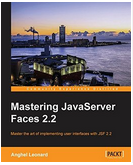








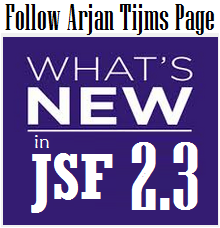

 Arrays
Arrays Converters
Converters

 JSF 2 Tutorials at www.mkyong.com
JSF 2 Tutorials at www.mkyong.com  JavaServer Faces (JSF) Tutorial
JavaServer Faces (JSF) Tutorial 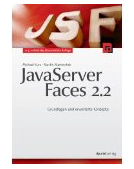
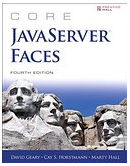
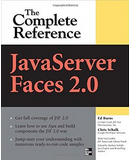
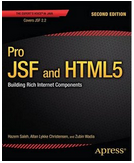








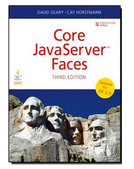

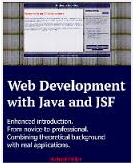
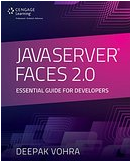

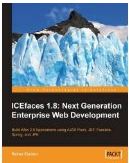




Niciun comentariu :
Trimiteți un comentariu